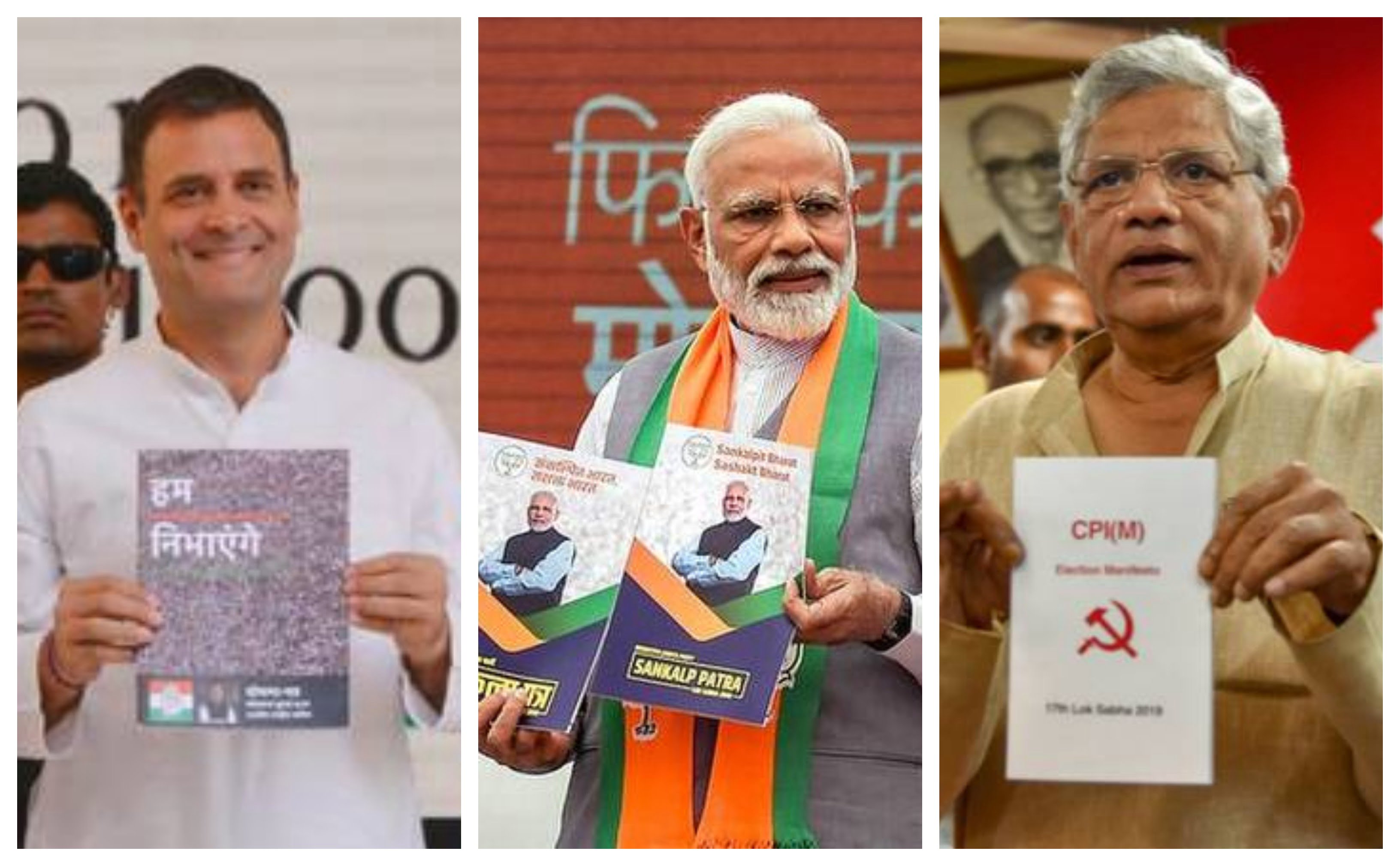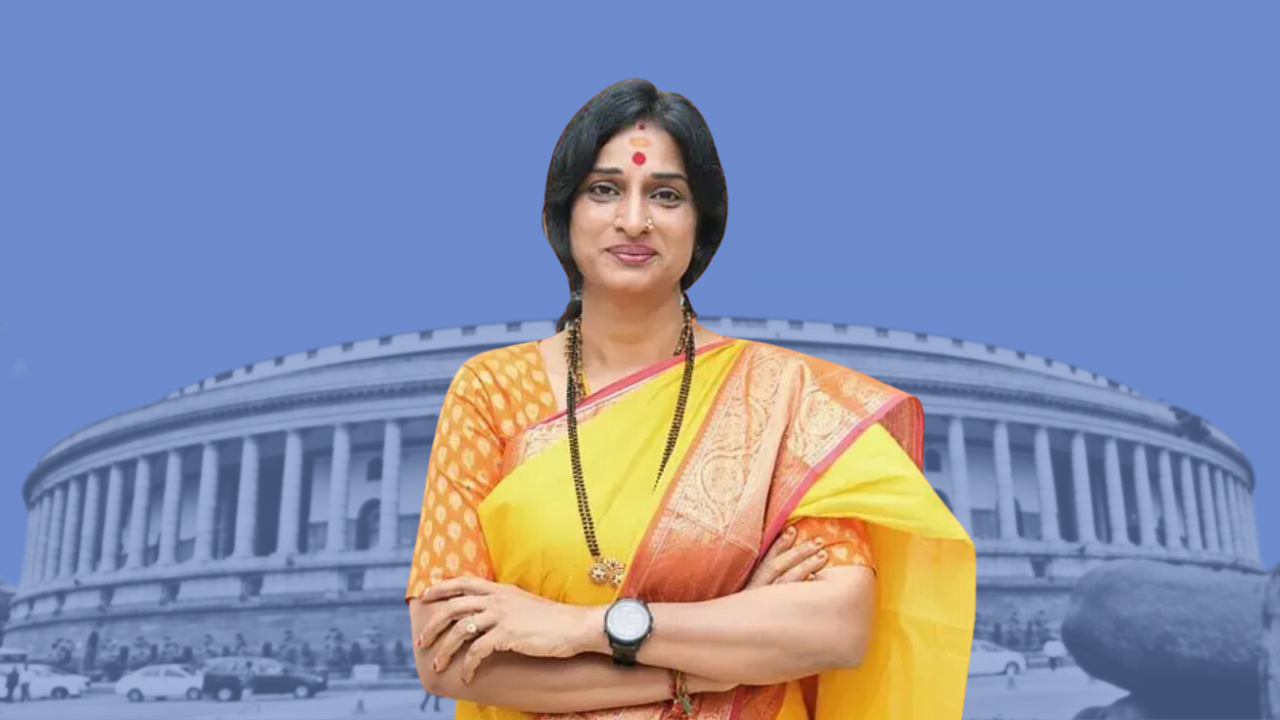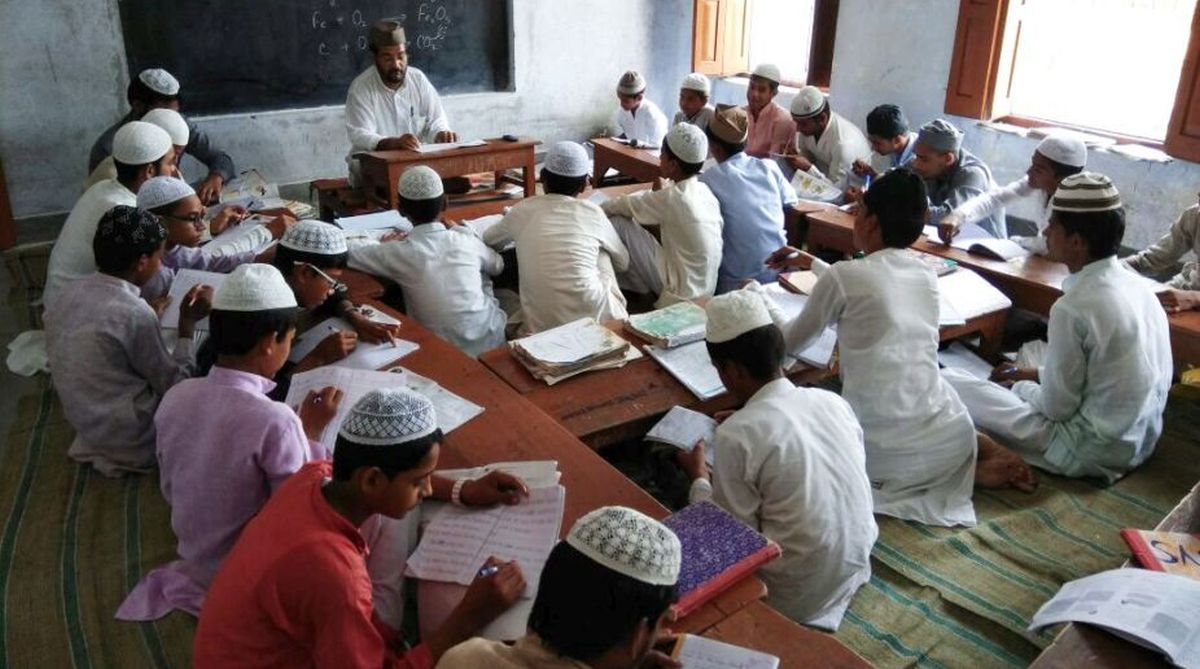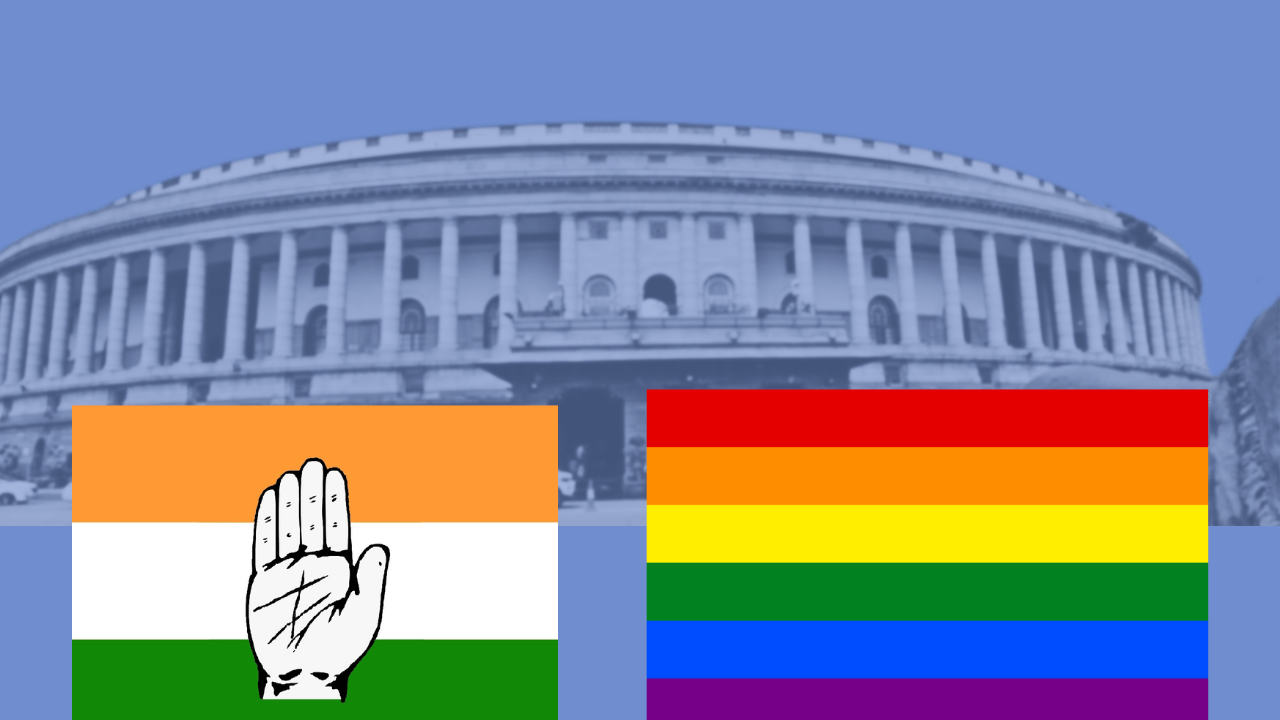Posted by Shohini Sengupta
The Lok Sabha general elections 2019 are currently underway, and we have witnessed some of the major parties promising a plethora of policy reforms in the country. Lucky for us, we also have the election manifestos of political parties, most notably the Indian National Congress (INC) and the Bharatiya Janta Party (BJP). While it is naïve to believe that manifestos win seats in India, it still remains an expression of commitments for parties, and in theory at least, allows citizens to hold parties accountable to more transparent, fair, and accountable governance. The election this year is also important for another reason – they come at a crucial moment of gender awakening in the country.
Also read: Women And Minorities: Here’s What The New Congress Manifesto Has to Say
This election not only comes at the back of a simmering feminist movement of #MeToo, not just in India, but a collective global reckoning, but also at the back of some of the most significant gender progressive judgments in India – the Sabrimala case, the Navtej Johar case (Section 377), the adultery case, and the privacy case (Puttaswamy). Our discourses are now being coloured in the narratives of disenfranchised women and queer folk, and finding deep roots in both our collective moral conscience, and most importantly, the Constitution. It is hardly surprising then that ‘women’ and ‘gender’ issues find a very strong mention in both of the manifestos released so far. Let’s go through some of the key points raised in both, and raise some fundamental questions that remain to be yet answered.
1. Reservation for women
The BJP has promised 33% reservation in Parliament and state assemblies. The INC promises the same, with an additional promise to extend this to central government posts.
2. Transgender rights
The BJP promises self-employment and skill development avenues for transgender youth, and a commitment to bring the transgender community to the mainstream through adequate socio-economic and policy initiatives. However, the NALSA judgment of 2014 directed central and state governments to treat the community as socially and economically backward classes, and extend reservation in educational institutions and for public appointments. It is not clear whether the BJP intends to enforce the judgment entirely. Going by the Transgender Bill that the Government presented in Parliament, this seems highly unlikely.
Let’s go through some of the key points raised in both, and raise some fundamental questions that remain to be yet answered.
The INC, on the other hand, promises to withdraw the Transgender Bill, 2018 pending in Parliament, and introduce a Bill consistent with the NALSA judgment of 2014; a move likely to be more appreciated by the community, which was vociferously against the Bill.
3. Access to credit and financial inclusion
The BJP promises, quite vaguely and without references to specific measures, to provide financial support to girls, and better employment opportunities. They also promise to mandate crèches, increase safety, provide healthcare, low-cost sanitary napkins, reduce malnutrition, and promote gender equality by prohibiting and eliminating practices such as Triple Talaq and Nikah Halala. The BJP goes so far as to suggest a UCC. However, the argument for a UCC is again positioned primarily on the axil of secularism and a biased view against only Muslim personal laws; rather than gender justice. Hence, instances of gender imbalances in non-Muslim personal laws have been conveniently omitted from the manifesto – for example, female intestate succession under Hindu personal laws. Of course, scholars have argued that uniformity itself is no answer to the myriad problems of religion-based personal laws, specifically without a concrete conception of what a UCC might look like.
The INC also promises fiscal incentives to women, creation of jobs, tenancy rights of women farmers, public safety, and provision of crèches. Interestingly, the INC promises some form of equality in pay, and an increase of the mandate and reach of the Prevention of Sexual Harassment Act.
However, key oversight by both parties, intended or unintended, include commitments to criminalise marital rape, provide steps to protect women from cyber crimes and online harassment, and make explicit promises to increase social security schemes for women.
4. LGBTQIA+
The BJP stops the gender equality discussion at women and transgender communities. There is no talk about queer rights in general, and this is telling of the commitment of the ruling government to “equality” rights.
The INC, on the other hand, promises to protect the rights of the LGBTQIA+ community, implement the judgment in the Navtej Singh Johar case, and mandate gender sensitivity training, especially for the rights of the LGBTQIA+ community in all government departments and organisations including the Armed Forces and the Police Forces. However, it remains vague about the specific parts of the Navtej Johar judgment that it would want to implement, and generally about targeted reforms.
These promises, particularly those speaking to the rights of the most vulnerable and disenfranchised, speak to the collective expectations of an entire democracy, and we will do well to critically engage with these ideas, and raise questions, consistently and continuously.
Both manifestos remain non-committal towards expressing their support for a law prohibiting discrimination and violence against the queer community. However, the CPI(M) must be lauded for having the most gender progressive manifesto, promising an anti-discrimination law, legal recognition of same-sex unions and partnerships, reservation for transgender people, and the inclusion of LGBTQIA+ people under anti-ragging policies of schools and universities.
5. Digital Rights
The BJP fails to make an explicit promise of digital rights in its manifesto. There is a lot of emphasis on Aadhaar and the Jan Dhan Yojana, both of which have been referred to as “successes”, and also the basis for promising the creation of an undefined “data-sharing framework”. It is crucial to remember here that women remain one of the biggest disenfranchised group in the Aadhaar scheme – widows, pensioners, lactating and pregnant women, amongst others. The Jan Dhan Yojana itself is severely gender-blind and lacks any sort of meaningful women specific benefits. To access government pensions, insurance, credit, gas, education, food, and healthcare, citizens need a bank account and Aadhaar. The refusal to meaningfully engage with these issues is telling.
Further, there is just a single reference of ‘privacy’, and no reference of ‘surveillance’ in the entire manifesto. This is a key omission, considering both INC and CPI (M) devote special attention to Aadhaar, privacy and mass surveillance. Lastly, the BJP manifesto devotes no words to curbing misinformation and fake news in India, which is troubling for civil liberties in India generally, and also for women, given the lynchings that happened last year.
Also read: Development For Whom?: What The 2019 BJP Manifesto Has To Say
It is important that we remember the election manifestos, particularly when it comes to gender rights, for not just this coming voting season, but for the years to come. These promises, particularly those speaking to the rights of the most vulnerable and disenfranchised, speak to the collective expectations of an entire democracy, and we will do well to critically engage with these ideas, and raise questions, consistently and continuously. Our questions to our polity remain till date, our most transformative and legitimate means of ensuring liberty.
Shohini is a public policy lawyer based in Delhi. You can follow her on Twitter.




